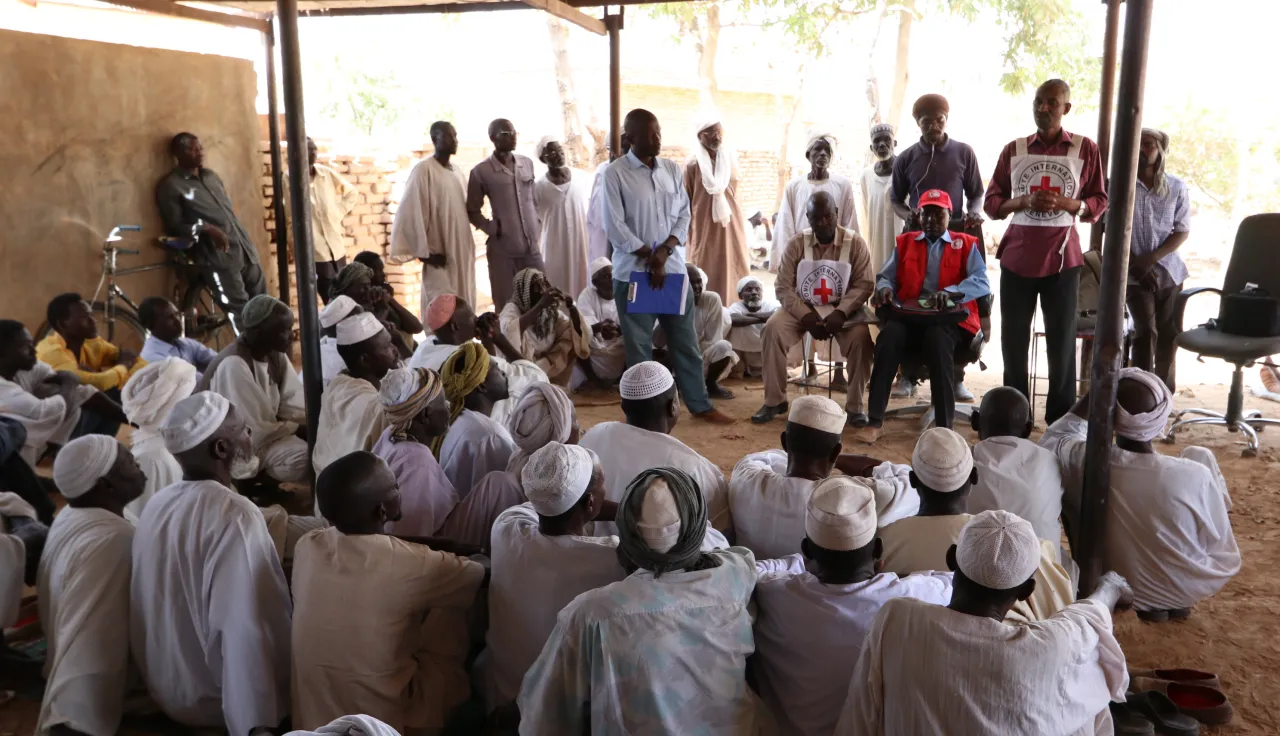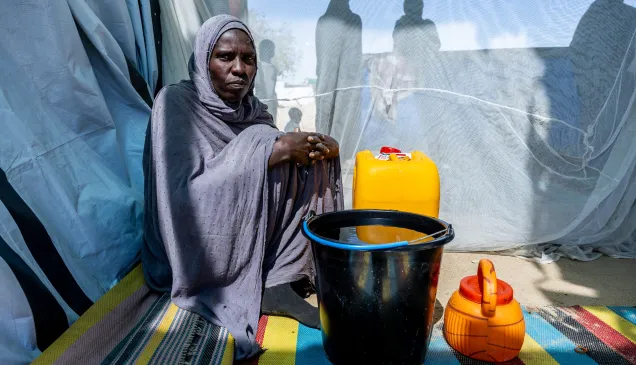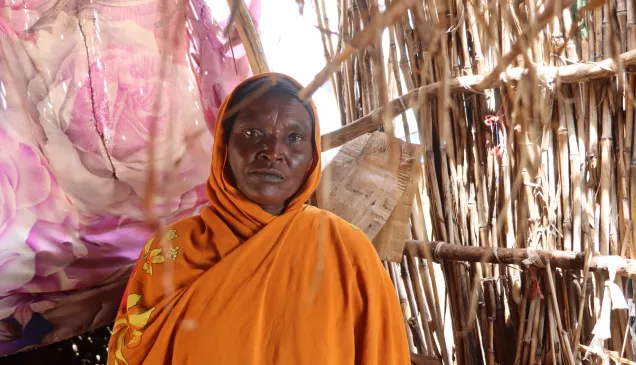According to two household surveys* conducted by the International Committee of the Red Cross (ICRC) in areas affected by violence in Darfur, all respondents said they are spending over 65% of their income on food, while nearly 70% said they are poorer than a year ago. The impact of violence in terms of loss of land, crops, livestock and access to vital services, as well as high inflation (359% in 2021, according to the Central Bureau of Statistics), is taking a heavy told on the most vulnerable in Sudan.
Sudan: Violence exacerbating poverty and food insecurity

Khartoum (ICRC) - The ongoing armed violence in Sudan is driving an acute deterioration in living conditions for millions.
What we see is a vicious circle that exacerbates tensions
said Pascal Cuttat, the head of the ICRC delegation in Khartoum.
"People try to recover their livelihoods destroyed in the past conflicts and violence, but access to existing resources is not available to everyone due to historical land disputes, which creates new intercommunal clashes and new displacement. Adding to that, the increased food prices are leaving many without alternatives to feed their families".
Sudan has some 3 million displaced people, of which more than 80 per cent live in the Darfur states, a region that continues to suffer the effects of violence. Having fled their homes and lands, they have lost their sources of income or access to food production. This puts pressure not only on the families arriving in towns and small cities but also on the host communities that have limited services and resources, which can also increase tensions.
Violence is not only affecting the Darfur region. West and South Kordofan states have seen an increase in violence, while at the same time are home to refugees and people returning from neighboring countries. These areas affected by violence depend mostly on agriculture and livestock. Their lives and food security depend on the land, but access is greatly affected by violence which impacts food production, income and available jobs.
"At the same time, around 80% of the affected population, according to our survey, cannot take mitigation measures available to others, living in temporary, often precarious displacement sites, or constantly fleeing from violence", explains Berthe Diomande, who runs livelihood support programs for the ICRC in Darfur. "For example, they can't save food from a good harvest because there is nowhere to keep it, and this means it can be stolen from them."
To help people and communities recover and build resilience, the ICRC provides livelihood support to people affected by conflict and violence in Sudan, including to refugees, returnees and displaced people.
From January to March 2022 the economic security team have implemented:
- Registration and verification of 25,400 families (152'400 people) who will receive agricultural support to help the cultivate during the main agricultural season in Darfur, Blue Nile and South Kordofan.
- Livestock vaccination campaign was completed in three localities in Blue Nile State; 100,000 animals were vaccinated and treated.
- Ongoing livestock vaccination campaign was started in North Darfur; 98,000 animals have been vaccinated.
- 3 solar fridges were donated to the Ministry of Agriculture in West Kordofan, Blue Nile and South Darfur States to improve the cold chain during vaccination campaigns.
- Post distribution monitoring to get feedback from the community on the appropriateness of the emergency multipurpose assistance to 5000 HHs in West Darfur was done.
- ICRC supported One Health diploma training for 17 Veterinary Technicians and Nurses from Ministry of Resources and Fisheries, conducted by the University of Bahri.
- 2400 people received payment to work on the rehabilitation of a water pond in Tawila, North Darfur.
*Each of the two surveys asked 500 households about their current state of affairs. One survey was carried out in late 2021. The other was carried out in March 2022.



